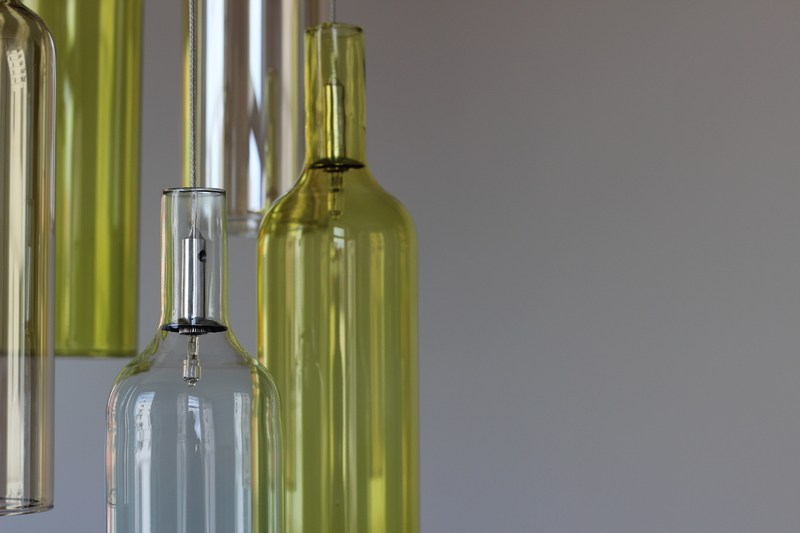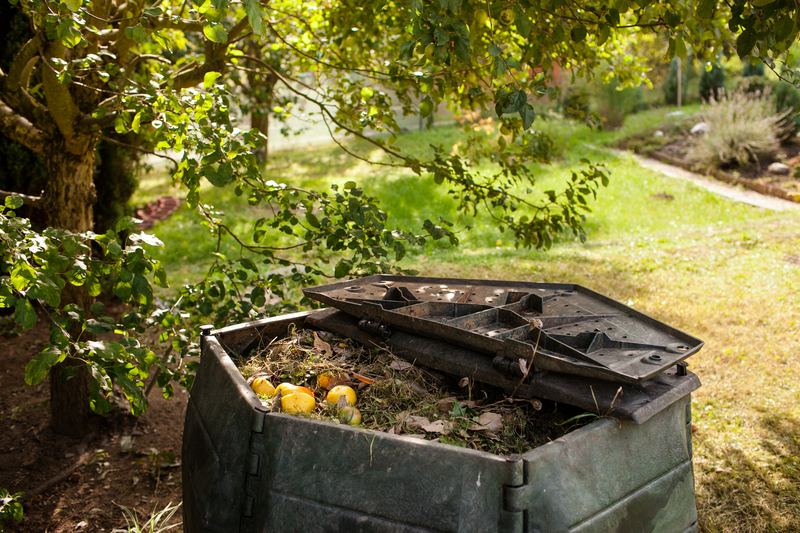Guide to Living a Life with Less Plastic
Plastic has become an everyday companion in our lives, from water bottles and grocery bags to packaged foods and personal care products. While it offers convenience, the side effects of plastic pollution have reached alarming levels, threatening marine life, contaminating waterways, and entering the human food chain. If you're eager to embrace a healthier planet and lifestyle, this guide to living a life with less plastic provides practical steps, insightful tips, and effective alternatives to reduce your plastic footprint.
Why Is Reducing Plastic Use Important?
Plastic is everywhere, but most of it is used only once and takes hundreds of years to decompose. This persistent material accumulates in landfills, oceans, and even the air we breathe. The following reasons highlight the urgent need for a plastic-free lifestyle:
- Environmental Impact: Every year, over eight million tonnes of plastic waste enter the oceans, harming marine ecosystems and endangering wildlife.
- Health Concerns: Microplastics are now present in food, water, and even the air, posing potential long-term health risks.
- Resource Consumption: Producing plastics relies heavily on fossil fuels, contributing to climate change.
- Economic Burden: Cleaning up plastic waste and addressing environmental damage costs billions annually.

How to Start Living With Less Plastic
Transitioning to a sustainable life with less plastic does not have to be overwhelming. The process is about making conscious, manageable choices that add up over time.
1. Conduct a Plastic Audit
Start by observing your daily habits and plastic consumption. Identify frequently used single-use plastics such as packaging, bottles, bags, and straws. Make a list of all plastic items you use in a week and highlight the ones that are easily replaceable.
2. Embrace Reusable Alternatives
Swapping single-use plastic items for reusable products is one of the quickest ways to reduce your plastic dependency. Consider the following alternatives:
- Reusable shopping bags: Always carry cloth bags when shopping to replace plastic bags.
- Refillable water bottles: Invest in stainless steel or glass bottles rather than buying bottled water.
- Travel mugs and containers: Use your own cup for coffee and reusable lunch boxes for meals on the go.
- Bamboo or metal straws: Carry a reusable straw to avoid single-use plastic options.
- Beeswax wraps: Substitute plastic wrap with washable, flexible beeswax or silicone wraps for food storage.
3. Shop Smart and Mindfully
Rethink your shopping habits to align with a low-plastic lifestyle:
- Buy in bulk: Purchase grains, nuts, and dried fruits from bulk stores using your own containers.
- Choose glass or paper packaging: Opt for products packaged in recyclable or biodegradable materials.
- Prioritize unpackaged items: Select loose fruits and vegetables instead of pre-wrapped alternatives.
- Say no to freebies: Politely refuse complimentary plastic items such as utensils, bags, or straws.
4. Change Your Personal Care Routine
The bathroom can be a major source of plastic waste. Transform your routine with these easy swaps:
- Bar soap & shampoo bars: Ditch bottled liquids in favor of solid, 'naked' products.
- Bamboo toothbrushes: Replace plastic toothbrushes with biodegradable bamboo alternatives.
- Plastic-free razors: Use safety razors with replaceable blades instead of disposable ones.
- Refillable deodorants: Look for brands that offer refill stations or compostable packs.
Creative Solutions to Live With Less Plastic At Home
5. Kitchen Innovations
The kitchen is a hotspot for single-use plastics. Reduce plastic dependency with these strategies:
- Use glass storage jars: Store dry goods in glass containers instead of plastic bags or tubs.
- Cloth produce bags: Carry your own bag for fresh produce shopping.
- Compost: Practice composting to minimize the need for plastic trash liners.
- Choose wooden utensils: Invest in wooden spoons and spatulas over plastic ones.
6. Laundry and Cleaning Products
Household cleaning often involves plastic packaging. Opt for sustainable cleaning solutions:
- Refill stations: Refill cleaning solution bottles at stores that offer bulk liquids.
- Soap nuts and laundry sheets: Eco-friendly and often packaged with little or no plastic.
- DIY cleaners: Make your own cleaning solutions from vinegar, baking soda, and essential oils.
- Reusable cloths: Replace synthetic sponges and disposable wipes with washable cloths.
7. Sustainable Fashion Choices
Clothing can also be a hidden source of plastic, mainly in the form of synthetic fibers. Shift toward a plastic-conscious wardrobe:
- Natural fabrics: Buy clothes made from organic cotton, hemp, linen, or wool.
- Thrift and swap: Shop second-hand clothes or participate in clothing swaps to extend the life of existing garments.
- Avoid microfibers: Steer clear of fabrics like polyester and nylon that shed microplastics during laundry.
8. Rethink Kids' Products
Children's products are often plastic-heavy. Choose greener options for toys and essentials:
- Wooden toys: Safer and more durable than plastic alternatives.
- Cloth diapers: Reduce waste by using washable cloth diapers.
- BPA-free bottles: If plastic is necessary, choose BPA-free, phthalate-free options.
- Borrow and share: Swap or borrow toys and baby items from friends or community groups.
Smart Habits for a Plastic-Light Lifestyle
- Plan ahead: Always carry your own bags, containers, and utensils when you're out --be prepared to avoid plastic.
- Support local markets: Farmers' markets typically offer fresher, unpackaged produce.
- DIY and upcycle: Upcycle jars and containers for storage, or use them as planters and organizers.
- Avoid impulse buys: Many unnecessary purchases come wrapped in plastic.
- Spread awareness: Share your knowledge with friends and family to build a larger community effort.
Eco-Friendly Alternatives to Everyday Plastics
Replacing plastic with eco-friendly materials not only minimizes pollution but also helps build a more beautiful, healthier home. Look out for these alternatives:
- Paper: Opt for recycled paper goods instead of plastic napkins or plates.
- Glass: Use glass bottles and jars in place of plastic ones for storage and drinks.
- Bamboo: Select bamboo for toothbrushes, cutlery, and even fabrics.
- Stainless steel: Durable and perfect for water bottles, lunchboxes, and straws.
- Silicone: Food-grade silicone is ideal for kitchen storage and baking needs.
Innovative Products for Plastic-Free Living
- Shampoo/conditioner bars: Completely eliminate the need for bottles.
- Refillable cleaning sprays: Buy once, refill endlessly, saving plastic bottles.
- Plant-based sponges: Compostable and effective for washing dishes and surfaces.
- Solar chargers: Use renewable energy over plastic-encased batteries.
Overcoming Common Challenges in Reducing Plastic
Living with less plastic is empowering but can present obstacles. Here's how to overcome them:
- Cost: Some plastic-free alternatives have higher upfront costs but last much longer, saving money in the long run.
- Limited availability: Not all stores offer eco-friendly options, but online shops and specialty stores are increasingly accessible.
- Social influence: Inspire friends or co-workers by setting an example and sharing the benefits of a minimal-plastic lifestyle.
- Habit formation: New routines take time. Celebrate small victories and keep learning.

Plastic-Free Living at Work and On the Go
At Work:
- Bring your lunch: Use reusable containers and cutlery.
- Refill stationery: Opt for refillable pens and pencils rather than disposable ones.
- Advocate: Suggest plastic-free alternatives for office supplies and break areas.
- Coffee: Use your own mug for hot beverages instead of disposable cups.
Traveling and Dining:
- Pack light: Carry a travel set of utensils, a bottle, and a straw.
- Choose sit-down dining: Avoid takeaway packaging by eating at the restaurant.
- Hotel options: Pick stays that embrace sustainability and avoid complimentary plastic disposables.
Frequently Asked Questions About Living With Less Plastic
Is it realistic to live entirely plastic-free?
Living completely plastic-free is a significant challenge due to the pervasiveness of plastic in manufacturing and packaging. However, anyone can dramatically reduce their plastic usage by focusing on high-impact habits and gradually seeking alternatives.
Does reducing plastic make a real difference?
Absolutely. Every item avoided or replaced decreases demand for new plastic production, lessens landfill and ocean pollution, and inspires others to adopt similar changes -- creating a ripple effect.
What's the easiest way to start?
Start with simple changes such as using a reusable water bottle, bringing your own bags, and choosing unpackaged fruits and vegetables. As these habits become second nature, move on to replacing less obvious sources of plastic.
How can I stay motivated?
Connect with online or local communities focused on zero-waste or plastic-free lifestyles, share your achievements on social media, and remind yourself of your positive impact on the environment and health.
Conclusion: Embrace a Life with Less Plastic
Reducing plastic use is not about perfection, but progress. By making informed choices and embracing small changes, you can significantly lower your plastic footprint, safeguard the environment, and cultivate a healthier way of living. Use the tips and practical advice from this comprehensive guide to living a life with less plastic to inspire your journey. Remember, every piece of plastic refused is a step toward a cleaner, greener future for ourselves and generations to come.
```